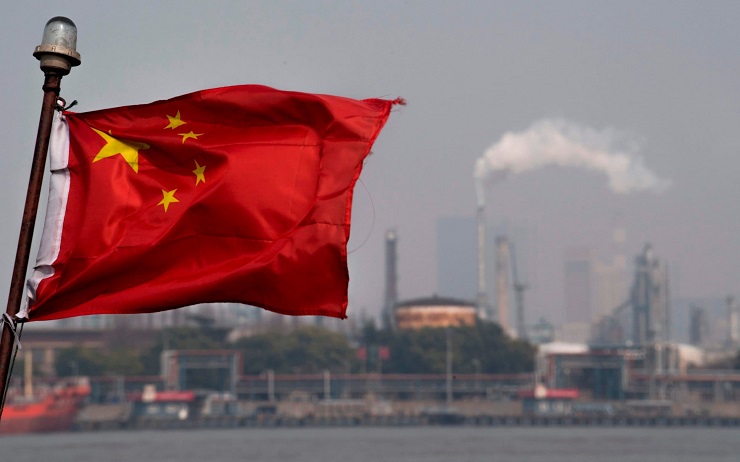The Trump administration’s policies in recent years have brought relations between Washington and Beijing to the brink of a cold war, currently experiencing the most serious crisis in decades: a trade war, ever-expanding sanctions, and an escalating military confrontation.
Washington’s attacks on Chinese tech companies have become almost daily, supplemented by sanctions against Chinese officials and agencies, expulsion of journalists, condemnation of Beijing’s policies in the Xinjiang Uygur Autonomous Region, Hong Kong, the South China Sea and even the closure of the consulate in Houston. Naturally, this led to a tit-for-tat response — American journalists were banned from working in China, the US representative office in Chengdu was closed, and sanctions were imposed on American officials and companies.
In essence, China has now taken the place of the USSR in White House politics as the main strategic and ideological adversary.
Given that China’s international political and economic clout has grown considerably in recent years, allowing it to discuss world problems with Washington on an equal footing in various fields, the confrontation between the two powers has intensified “in the Trump era” and has been monitored with particular attention around the world. There were hopes in political circles that with the change of administration in the White House there might be some positive changes that would improve the overall political climate on the planet.
The positive forecasts were tied to a certain extent to the fact that it was Joe Biden who had made a personal effort to bring China into the World Trade Organization (WTO), and it was he who, on behalf of Washington, invited Beijing to the table at which the world powers were gathered. Even as Vice President, Biden met with Chinese leader Xi Jinping eight times and even played basketball with him at a school in Sichuan province. Frankly, according to Biden, the head of China at the time gave him the impression of a hard and callous leader who questioned American power and believed in the superiority of the Chinese Communist Party. As a result, during a meeting at the White House after his trip to China, Biden told President Obama’s advisors that “there will be no shortage of problems with this guy.”
After the Tiananmen Square events in 1989, Biden, as a US senator, initiated a bill to create a state-sponsored media outlet that would promote “democratic values” in China. Washington succeeded in this project in 1996 with the creation of Radio Free Asia, which still exists today.
Now, Joe Biden openly calls Xi Jinping an authoritarian leader, admitting in numerous interviews that the PRC is the main strategic challenge for the country and promising to quickly impose sanctions if necessary.
On February 5, two weeks after becoming president of the United States, Joe Biden outlined his future policies in State Department with a policy speech titled “America is Back” about the foreign policy priorities of his administration, in fairly straightforward terms, albeit without much detail. On China, Joe Biden has not yet shown his aggressive stance, as many Western commentators expected. Touching only in very general terms on US-China relations, the new US president said that Washington would confront “economic abuses and aggressive actions, as well as counter Chinese attacks on human rights.” “We will compete from a position of strength,” Biden summarized.
And now, as confirmation of this “position of strength” of the new administration, there has already been a blatant increase in the US military confrontation with China. There has been a significant US military buildup off the coast of China, including the arrival of the destroyer Rafael Peralta, now permanently stationed at the US naval base in Yokosuka, Japan, on February 4. This was announced by the Seventh Fleet Command of the US Navy, emphasizing that “the presence of the destroyer Rafael Peralta enhances the national security of the United States, its allies and partners, and improves the ability to defend strategic interests.”
At the same time, the US is demonstratively moving the aircraft carrier group from the Middle East to China. In particular, on February 2, the nuclear-powered aircraft carrier USS Nimitz was sent to the Indo-Pacific region from its previous location in the Middle East, where it was stationed, as Washington had previously stated, “in order to prevent a threat to US interests from Iran.”
The explicit approval by the White House of the Pentagon course for escalation of military confrontation with China is evidenced by the frank provocative passage on February 4 of the missile destroyer USS John McCain of the 7th Fleet with guided missiles such as Arleigh Burke through the waterway separating mainland China and Taiwan on the eve of the program speech of Biden. US warships under Donald Trump have periodically made such transits in the Strait, provoking an angry response from China, which insists that self-governing Taiwan is part of its territory. Beijing considers any warships passing through the Strait without its permission to be violators of Chinese sovereignty.
“China-US relations are at a critical moment, facing new opportunities and new challenges,” Yang Jiechi, a member of the Political Bureau of the Communist Party of China (CPC) Central Committee and head of the Office of the Foreign Affairs Commission of the CPC Central Committee, said in an online meeting with the National Committee on US-China Relations on February 2. Therefore, returning China-US relations to a constructive and predictable direction is a common task facing the two countries. As Yang Jiechi pointed out, the question of which path the bilateral relations will take is frankly of concern both to the peoples of the two countries and to the entire international community. In his words, “there are many opportunities for China and the United States to cooperate in pandemic control, economic recovery, climate change, and other areas.”
It is therefore a task for the current US and Chinese authorities to use these opportunities properly in the interests of all countries.
Vladimir Danilov, political observer, exclusively for the online magazine “New Eastern Outlook”.

